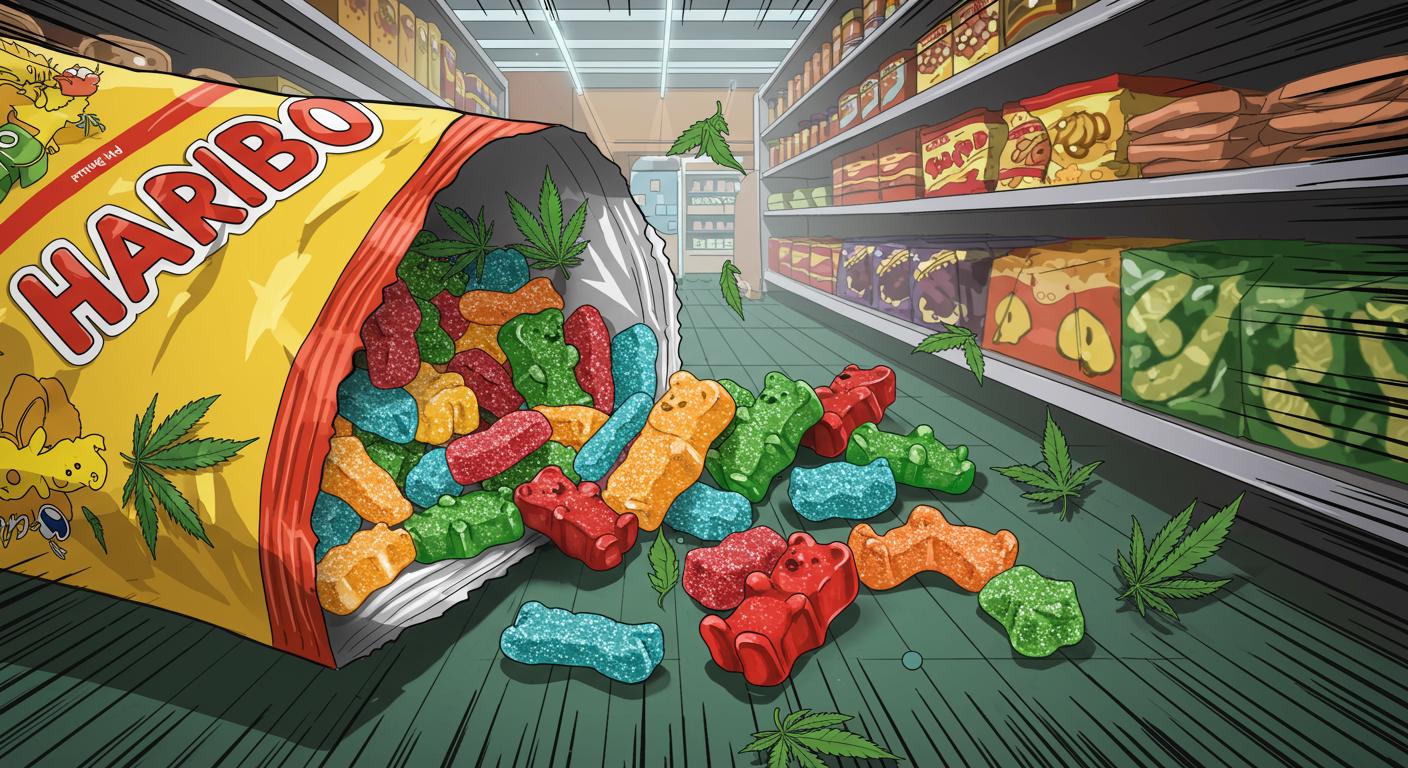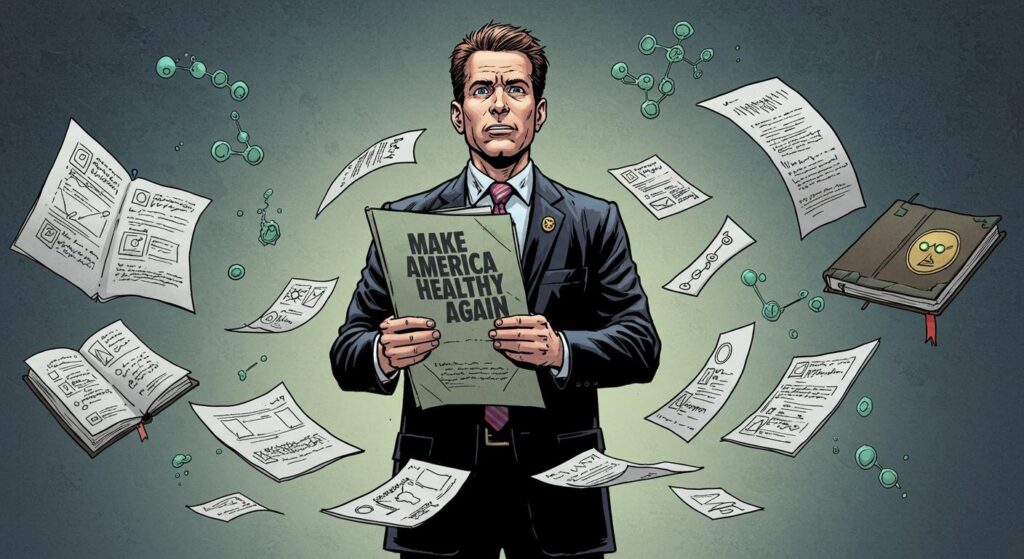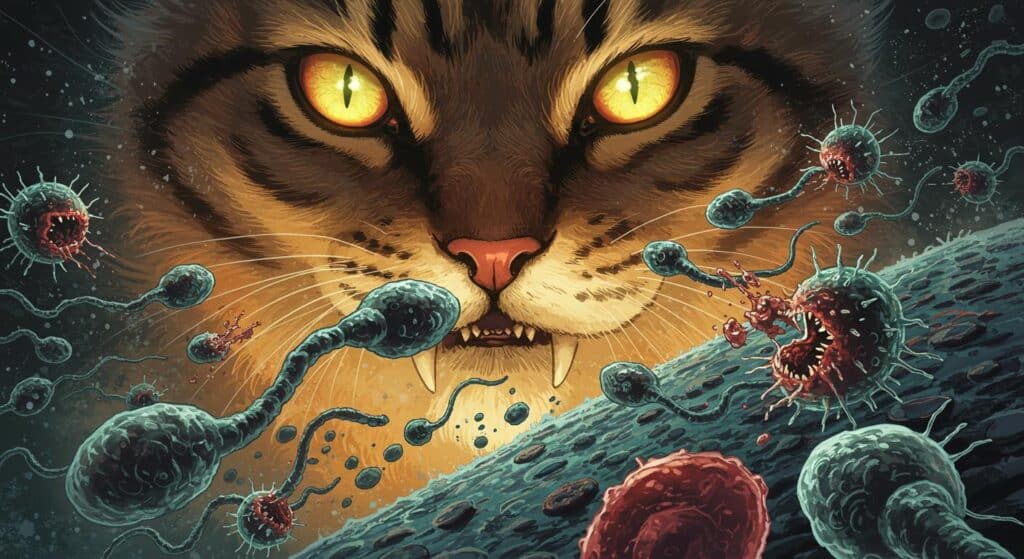If there’s one thing you hope for from a bag of sweets, it’s predictability. Sugar, food dye, some nostalgia—maybe a regrettable flashback to orthodontic drama, but not, say, psychoactive botanicals. This week, however, Haribo’s recall of Happy Cola F!ZZ sweets in the Netherlands has upped the ante in the “unexpected ingredients” department: traces of cannabis were found in multiple bags, leaving consumers dizzy in more ways than one.
Gummy Bears on a New Trip
Details emerging from Dutch authorities, as detailed by BBC News, read like the setup to a joke only the Netherlands could deliver: a family cracks open a 1kg Haribo bag, but instead of just sugar highs, several members—as well as unrelated consumers—report dizziness and illness. The Dutch Food and Consumer Product Safety Authority (NVWA) told media that they tested the suspicious sweets and the results turned up cannabis.
A NVWA spokesperson, cited by both BBC News and BNN Bloomberg, confirmed that only three bags were tainted, but Haribo is recalling their entire stock of the Happy Cola F!ZZ line in the Netherlands “as a precaution.” Impressively, this product recall covers the whole country, though other regions and all other Haribo treats are deemed safe to eat. STV News highlights that the affected batch comes with a January 2026 best-before date and a specific batch code—details likely receiving extra scrutiny from Haribo’s quality assurance team this week.
The NVWA’s guidance is direct: “Do not eat the sweets.” There’s an efficiency to those four words that suggests Dutch public health officials have seen stranger things and prefer to pre-empt further adventures in candy chemistry.
Questions, Investigations, and Cosmic Irony
While the facts are bizarre, the mystery only deepens. The NVWA, police, and Haribo are jointly investigating how cannabis found its way into one of the world’s most reliably innocent gummy shapes. As reported by BNN Bloomberg, it remains unclear whether the bags were genuine Haribo products or counterfeits. Even with contemporary safety nets and traceability standards, certain questions slip through like a rogue cola bottle in an assembly line.
A Haribo spokesperson, quoted by STV News and corroborated by News24, stressed that “the safety of our consumers is our highest priority and HARIBO takes this incident very seriously,” adding that the recall is limited to a specific product and batch in the Netherlands. News24 also confirms that both children and adults became unwell after consuming the tainted sweets. The NVWA said that police reported the issue after several people felt ill, and, as always, a full investigation is underway to find the source.
Is This the Weirdest Candy Recall Yet?
Food recalls aren’t new—tracing a stray pathogen or allergen through the arteries of the global snack market is just another week for regulatory agencies—but cannabis gummies almost never show up by accident, and certainly not packaged for a mainstream market. This scenario, as highlighted by multiple outlets, seems to blur the increasingly thin line between novelty confections and the outright bizarre.
What’s stranger: cannabis sneaking undetected into cola gummies, or the fact that, despite all that barcoding and inventory sorcery, no one has yet pinpointed how it happened? As emphasized by STV News, other markets remain unaffected. That makes this either a very unlucky contamination or a targeted blunder—perhaps fodder for Haribo’s internal mythology for years to come.
And, as the ever-classic “what flavor is the green one, anyway?” debate returns, it might be the first time the answer isn’t fruit-related at all.
Sweet, Mysterious, and Somewhat Ironic
We may not know who greenlit this inadvertent recipe remix, but there’ll likely be more side-eyes at the snack aisle in Dutch supermarkets for a while. Somewhere, a confectionery supervisor is probably crafting the performance review of a lifetime—assuming, of course, the culprit wasn’t just random chance.
In a snack market obsessed with the new and unusual, it turns out the strangest surprises aren’t always what the marketing department dreams up. Is this just a once-in-a-lifetime oddity, or a reminder that even the most iconic treats aren’t immune to weird twists?
Either way, this recall nearly puts the “buzz” back in fizzy cola bottles.







